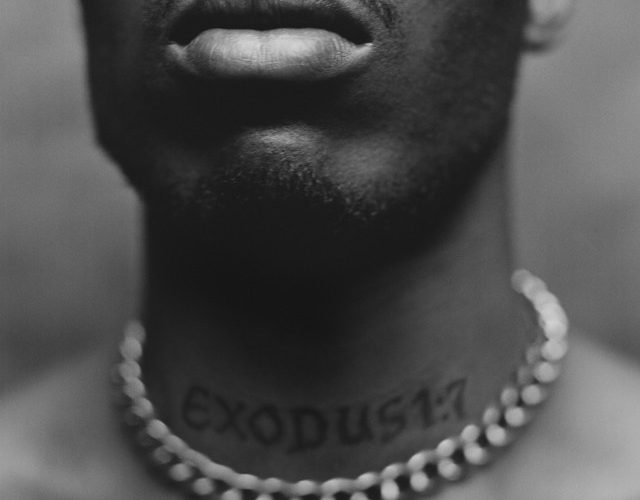The passing of DMX this past April came as a shock. Considering how his eighth studio album, “Exodus”, was slated by the man himself to be something of a comeback album, the shock is still reverberating throughout the hip-hop community. Yes, his death was a shock, but not an entirely unexpected one considering how he lived: As hard and fast as his lyrics. As a fan, I’d hoped that he’d be around to see the reception of this album, the first of his I’ve dropped some coin for and listened to since his 2003 album. His appearance on Noreaga’s “Drink Champs” video podcast in promoting the album reignited my interest in hearing what he had to say at this point in his life. This album was also his return to Def Jam, where he was signed to for his first five albums (all of which were commercially & critically successful), so there’s much to be said about the irony of ending at the very same record label which became his long-time home. The title “Exodus” isn’t just a nod to his son of the same name, but also coincides with the word’s actual meaning: Mass departure.
“Exodus” is vastly different than X’s prior releases in that it’s his shortest in terms of its time length and tracklist (13 tracks clocking in at a total of less than 40 minutes). And with the exception of the expected “Prayer” A cappella, every track on here that isn’t a skit includes a guest feature. In each of his previous seven albums, he had several tracks that he held down by himself, many of which turned out to be memorable singles. Not to take away from the cameos, but there’s so many of them that it makes X look like a guest on his own album. Additionally, the album nearly entirely produced by Swizz Beatz, having a hand in nearly every track as either a producer or co-producer. The sole exception being the closing and aforementioned final “Prayer”, which was produced by Kanye West and taken from a live recording at one of Ye’s Sunday Services. As with his previous Def Jam releases, the album’s packaged in a way to satisfy hardcore fans despite its clear mainstream potential.
Lyrically, even at the age of 50, DMX hadn’t changed much. He’s still the spiritually tortured rapper with an angel and a devil on both of his shoulders while retaining the customary dog motifs. Speaking of which, the album begins with “That’s My Dog”, featuring The L.O.X. and a throwback to their Ruff Ryders tribalism. Swizz’s production here is strong, with the echoing ethereal vocals and dusty snares. Also, one line from X’s verse now holds more weight: “When I came into the game, I crashed through the wave / I’m the best, somethin’ that I’m takin’ to the grave.” The dog theme continues on something of a Cash Money-Ruff Ryders reunion on “Dogs Out”, featuring Lil’ Wayne who gets props for some clever lyrics that go in-line with the song title. Snoop Dogg has an appearance on the Marvin Gaye-sampling “Take Control”, which is appropriate not just for the dog aspect, but because of the ridiculous popularity of their social media Verzuz battle.
That track has the potential for commercial potential, as do the tracks with the more obvious features. The gospel tinge of “Hold Me Down” is one such song and having Alicia Keys contributing musically and vocally helps considerably. The one unexpected collaboration was with Bono from U2 on the metaphorical “Skyscrapers”, a guitar-laden synth heavy uplifting anthem. The other single with commercial potential is “Money Money Money” featuring Memphis rapper Moneybagg Yo with Swizz going heavy on the keyboards for the production. “Bath Salts” is certain to turn heads, as it features Jay-Z and Nas. On paper, this collaboration reads like the anticipation viewers had in seeing Al Pacino and Robert De Niro sharing screen time for the first time in “Heat” (1995). Is the result the same? Not exactly, but not close either. The sole single from the album is “Hood Blues”, featuring his rap contemporaries in Westside Gunn, Benny the Butcher, and Conway the Machine. Despite the age gap, X hilariously lampshades this when he barks, “I ain’t 50 years old for nothin’!” Swizz and Avenue Beatz do their best in the production to emulate the Griselda sound:
Family also plays a part on this album. There’s the title track, then Exodus makes another appearance on the somber “Waiting in the Rain” (which features a reappearance from Nas and primarily produced by Mr. Porter). Since his appearance years back on an episode of “Iyanla Fix My Life”, X has had an even more strained relationship with his oldest child, Xavier. He addresses his broken relationship with his first-born son on “Letter To My Son (Call Your Father)”. With Usher’s vocals and its violins, the song’s bittersweet aspect is exacerbated with X’s death and the knowledge of no chance of reconciliation between father and son. Many fans and listeners are highly praising this album simply because it’s DMX and his passing has served to elevate that praise. The pro here is that DMX proved he can still make good music, and can rap alongside his peers and contemporaries alike. The criticism that I have for this album is that with these guest features, X had a little too much help from his friends. Though Swizz did vary the sound of the production, the album’s overall sound could’ve benefitted from a P.K. or Dame Grease beat. “Exodus” isn’t DMX’s worst album, but for a comeback album, a now-posthumous one at that, it should’ve been better.

